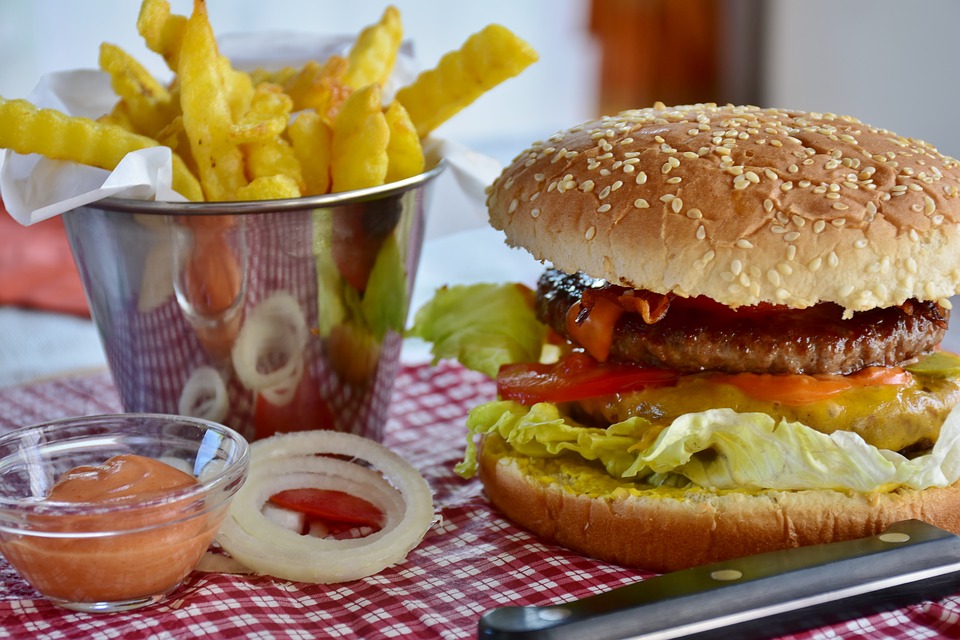Food addiction is a significant issue and a crucial reason why some people can’t avoid themselves around certain foods-no matter how much effort they put. Food addiction is a craving to junk food, parallel to drug addiction. It is comparatively a recent and debatable-term. It works same as drug addiction. Food addiction includes same areas of brain as drug addiction. The same neurotransmitters are involved, and many of the indications are identical.
Processed food products (junk food) have blazing impact on the reward centers of your cerebrum. These impacts are produced by brain neurotransmitters like dopamine. The most questionable foods comprise of typical junk foods like candy, sugary soda and high fat fried foods. Food addiction is not induced by lack of determination but results from a dopamine signal that alters the biochemistry of brain.
8 Symptoms Of Food Addiction
There is no blood test to determine food addiction. It’s based on observable behavioral indications. Here are 8 common indications of food addicts:
- You often get longing for certain foods, even though feeling full and having just finished a balanced meal.
- When you have give up and start eating a food you wanted to eat, you often find yourself eating much more than expected.
- When you eat a food you craved, you consistently eat to the point of feeling extremely stuffed.
- You usually feel blameworthy after eating peculiar foods –yet find yourself eating them again soon after.
- You frequently make justifications in your head about why you should eat something that you’re craving.
- You have regularly –but unsuccessfully –tried to leave eating certain foods or fixed rules for them, such as cheat meals or days.
- You often hide your consumption of unhealthy foods from others.
- You feel unable to control your consumption of unhealthy foods –despite knowing that they cause you physical harm, including weight gain.
If you express four or five symptoms on this list, you may have a genuine problem with food. If six or more apply to you, then you are most likely a food resist.
Food addiction can cause physical harm and lead to severe ailments like obesity and type 2 diabetes. In addition, it may adversely affect your self-image, making you unhappy with your body. As with other addictions, food addiction may take an emotional toll and increase your risk of premature death.
If you want to beat food addiction, you have to be sure that eliminating certain foods completely is the right thing to do. If you’re uncertain, writing down the pros and cons may help you make the decision.
If you decide to cut out certain foods completely to overcome your food addiction, you can do a few things to prepare yourself and make the transition easier:
- TRIGGER FOODS: Note down a list of the foods you tend to long or crave. These are the trigger foods you need to avoid completely.
- FAST FOOD PLACES: Compose a list of fast food areas that deliver healthy foods and note their healthy options. This may avoid a relapse when you find yourself starving and not in the mood to cook.
- WHAT TO EAT: Assume about what foods you're going to eat — alternatively healthy foods that you like and are already eating regularly.
- PROS AND CONS: Try preparing various copies of your pro-and-con list. Keep a copy in your kitchen, glove compartment, and purse or wallet. Warn yourself why you're doing this.
Furthermore, don’t go on a diet. You should put weight loss on hold for at least one to three months.
In case, you end up losing control over your food consumption again take advice of some health experts and support groups. You can find a psychologist or psychiatrist in your area who has knowledge in dealing with food addiction to get one-on-one support –but there are many free groups accessible as well.
These involve 12 step programs like Overeaters anonymous (OA), GreySheeters Anonymous (GSA), Food Addicts Anonymous (FAA), and Food Addicts Anonymous (FAA). These groups meet regularly –some even through video chat –and can offer you the support you need to beat your addiction.
Conclusion
Food addiction is a problem that rarely resolves on it’s own. Unless you make a conscious decision to deal with it. First step to overcome your addiction include listing the pros and cons of quitting trigger foods, finding healthy food alternatives, and setting a fixed date to start your journey to a healthier you. You may also want to seek help from a health professional or free support group. Always remember that you are not alone.
Sources: www.healthline.com, www.webmd.com
